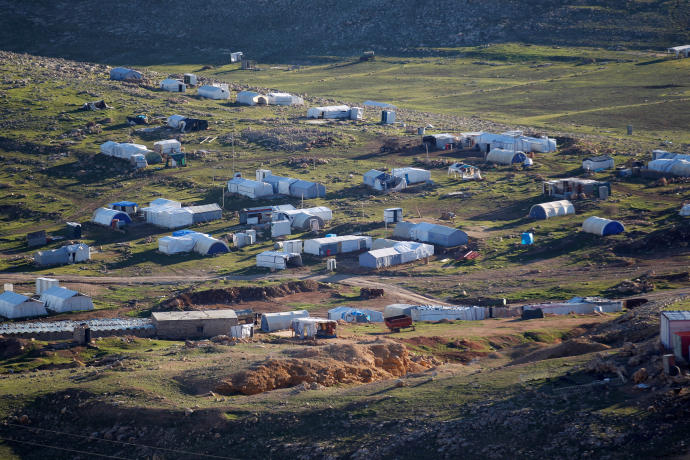Clashes in northern Iraq between the Iraqi army and local armed groups have forced thousands of members of the Yazidi community to flee.
Yazidis were persecuted and subjected to brutal genocide by ISIS in 2014 and some 500,000 fled the area of Sinjar, where many of them live. While some of these areas were liberated from ISIS in 2015, after 2017 this area came under the control of Iraq’s government again.
A patchwork of local armed groups continued to hold sway. This included members of the YBS, a far-left group that is linked to the YPG and alleged to be linked to the PKK. As such Turkey claims there are “PKK terrorists” in Sinjar, but for Yazidis, the YBS is a local group that helped defeat ISIS.
Regardless of the complex politics of post-ISIS Sinjar, the reality is that average people are suffering because the international community has not invested in the area. There is a lack of security.
This means that hundreds of thousands of Yazidis remain refugees and IDPs. Many live in the autonomous Kurdish region. The Kurdish Peshmerga had helped control Sinjar before 2017.

This means the Yazidi area, having suffered genocide and depopulation, is now being competed over by numerous forces, including the Iraqi federal government, Shi’ite militias, the YBS, and Peshmerga.
For locals this situation is impossible. Dozens of checkpoints make it hard to move from place to place. Turkey bombs Sinjar claiming to be fighting the PKK, but in reality, it bombs civilians.
The Iraqi army, prodded by Turkey, is now trying to regain control. Clashes broke out between the army and Yazidis who have joined the YBS.
Reports say that the fighting caused 3,000 to flee toward Dohuk and Kurdish-controlled areas. Hundreds of families have fled, reports say.
The people fleeing have called on the international community to help stop the fighting. However, the anti-ISIS Coalition and the international community do not invest in the security of Sinjar.
This leaves the victims of genocide without the basic elements of security and health care, as well as educational institutions, that they need. It has been almost eight years since the genocide and almost nothing has been done for the Yazidis.
Halfway around the world, two members of ISIS are now being given long sentences in US prison. These are members of the so-called ISIS “Beatles,” a group of British men who volunteered to join ISIS and were allegedly involved in horrid human rights abuses.
Alexandra Kotey, 38, pleaded guilty last September to eight criminal charges relating to the abduction, torture and beheading of IS hostages in Syria, the BBC reported a week ago. He was sentenced to life in prison.
“Kotey, originally from London, showed no emotion as Judge Thomas Selby Ellis delivered his verdict,” the BBC said. Judge Ellis said he had committed "egregious, violent and inhumane" actions. El Shafee Elsheikh, another member of the “Beatles” is also facing sentencing. He is 33 years old.
Does this bring any sense of justice to the Yazidis who still face conflict in their homeland? It is not clear if they have been given the chance to express their feelings in US courts or given the media attention they deserve.
While the sentences against the “Beatles” relate to crimes committed against the US, UK and other European citizens that were abducted by ISIS, the Yazidis have generally been ignored.
